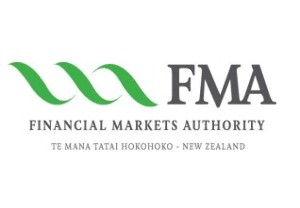Woman loses over $100k in Forex scam
A Kiwi woman has lost more than $100,000 after being conned in a complicated investment scam involving supposed Forex currency trading.
Thursday, July 15th 2021, 12:55PM

Jane (not her real name) contacted the Financial Markets Authority (FMA) in June this year to report she had been lured into a serious investment scam after meeting the scammer in March on the popular dating app Hinge.
Jane told her story to the FMA in the hope it would prevent others from falling into the same trap.
“I met a Chinese guy named ‘Wu Haoyu’ on Hinge on the 9th of March," she says.
“He claimed he lived in Canada a few years and moved to Wellington in February. He was planning to move to Auckland in June.
"For the first two months, he texted me daily and often sent me photos and videos of himself and his life in Wellington.
“He shared a lot of things in common with me. We read the same books, had the same thoughts on the same book and similar values etc.
“After a month, he started sharing his biggest passion/hobby with me – cryptocurrency investment. He said he had a finance degree and learnt how to read candlestick charts.
“He showed me his trading history and persuaded me to invest in Forex currency trading.”
Jane did her homework before transferring any money. His Facebook and LinkedIn pages checked out, and the link to the website sent by the scammer - www.forexdce.com - was professional looking, with real trading data and a forum for investors to share investment tips.
‘Wu Haoyu’ spent time teaching Jane about Forex, and after a while she made her first transfer of $3000, then another $8000.
Jane showed plenty of skepticism and would contact the www.forexdce.com customer service team to double-check the information she was given. Again, it all checked out, and their call centre would verify his claims.
“I was manipulated and guilt-tripped into further investing $100,000 because he claimed if I didn’t increase my fund to a certain level, he couldn’t either.
"I felt I owed him money. He made me feel it was the platform making difficult rules to encourage people to invest more.
“He transferred $20,000 into my Forex account without my permission.
"He said there was a good opportunity coming up soon and after this trade, we can both withdraw our funds and I can then return his money to him when he came to Auckland on the 15th of June.
"I was very surprised and asked them to return his money back to his account but they said inter-account transfers were forbidden (to avoid money laundering) and the only way he deposited the money into my account was through bank transfer.
“So I was stuck with his money in my account and I only wished it could all finish soon so I can withdraw the fund and return his money.
“After the last trade, I requested a withdrawal.
"I was told I must transfer 20% of my total withdrawal as tax money first before 10th of June, only then they will release the fund into my ANZ bank account.
"Otherwise, my fund will be frozen and withheld. At that moment, I fully realised that it was a scam. I reported it to my bank and the NZ police immediately.”
Regrettably, NZ Police have been unable to help Jane.
Despite Jane telling the scammer she had reported him to the police, he remained in touch, even boasting about new victims he was now scamming.
He claimed he would get 10-20% of the total scammed money and the company gets the rest.
He told her he was recruited in China and spent three months in Laos for intensive psychology training.
The FMA says Jane fell victim to a sophisticated international scam, involving an apparently highly organised network that is trained to analyse the psychological make-up of their victims.
Jane has since made contact with other victims on Reddit and picked up some helpful tips on how to identify scammers operating online.
The FMA says the risk of being scammed in online foreign exchange (Forex) trading is high.
"We strongly recommend you seek financial advice before investing.
"The risk is even higher if you trade with borrowed money, as this increases any gains or losses you make. We regularly receive complaints and enquiries from consumers who have lost money in online Forex trading," the FMA said in a statement.
| « Expansion accelerates taper talk | Murder House memories: why KiwiSaver investors need to brush-up on good financial habits » |
Special Offers
Comments from our readers
No comments yet
Sign In to add your comment
| Printable version | Email to a friend |









